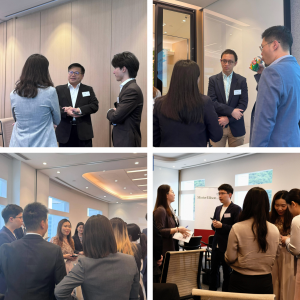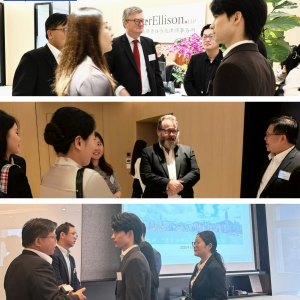On 17 April 2025, the Court of Appeal handed down judgment in Wong Chi Hung v Lo Wing Pun and Another [2025] HKCA 370, providing significant guidance on when foreign illegality can serve as a defense to claims in unjust enrichment under Hong Kong law.
Background Facts
The defendants operated a money exchange business in Hong Kong. In June 2016, the plaintiff wished to exchange RMB 1 million he had in Mainland China into HKD. The arrangement involved the plaintiff depositing RMB into a Mainland bank account specified by the defendants, who would then deposit the equivalent amount in HKD into the plaintiff’s Hong Kong account at an agreed exchange rate.
This method of exchange, known as “match-and-knock” (對敲), is typically used by unauthorized money exchangers in Mainland China, commonly known as “underground banks” (地下錢莊), which is a colloquial expression and not a legal term. One can see from the media that in recent years, law enforcement agencies in Mainland China have cracked down on underground banks and illegal operations where individuals, for the purpose of unlawful profit, engage in cross-border remittances, foreign exchange trading, and financial payment settlements without approval from the relevant authorities.
In this case, the plaintiff duly transferred RMB 1 million to the specified account in Mainland China. However, shortly afterward, the account was frozen as part of an unrelated criminal investigation into a pyramid selling scheme. In March 2018, the entire balance in the account, including the plaintiff’s RMB 1 million, was confiscated pursuant to a Mainland court judgment, even though the plaintiff’s money had no connection to the pyramid scheme.
The defendants never paid the equivalent HKD amount to the plaintiff in Hong Kong as agreed.
Procedural History and Key Issues
At first instance, the District Court rejected the plaintiff’s claim in contract on the ground that it was unenforceable as a matter of Hong Kong public policy because of its illegality under Mainland laws. However, the Court upheld the plaintiff’s claim in unjust enrichment based on total failure of consideration.
The defendants appealed, arguing primarily that foreign illegality should bar the plaintiff’s claim in unjust enrichment for the same reasons it barred the contract claim.
The Court of Appeal’s Decision
In dismissing the appeal, G Lam JA (with whom Kwan Ag CJHC and Au JA agreed) made several significant determinations regarding the effect of foreign illegality on restitutionary claims:
Applying these principles, the Court found no reason in comity or public policy to deny restitution to the plaintiff, especially given that restitution would also be possible under Mainland law.
Takeaways
Generally, in cross-border disputes, foreign illegality can add layers of complexity to litigation strategy as courts have to balance comity and justice, ensuring fairness in claims.
This decision provides helpful guidance on how Hong Kong courts would approach restitutionary claims potentially tainted by foreign illegality. It strikes a balance between respecting comity and ensuring justice for parties who have parted with money under failed transactions. The interplay between comity, justice, fairness and foreign illegality significantly impacts litigation strategy in complex cases, especially those involving restitutionary claims.
For further information or advice on cross-border transactions and restitutionary claims, please contact our Dispute Resolution team.
The full judgment can be accessed here.
The company re-domiciliation regime has taken effect on 23 May 2025. This new regime will allow an overseas company to transfer its domicile to Hong Kong while maintaining its original legal identity and business continuity.
To learn more about the new regime, please refer to the article here authored by our Partner, George Tong, and trainee solicitor, Matthew Lau.
On 21 May 2025, our Partner Iris Cheng presented a webinar for the members of the Actuarial Society of Hong Kong on “Introduction to Professional Negligence Law in Hong Kong”. The session was attended by over 100 participants including directors, C-suite executives, senior actuaries and senior financial function personnel from various insurers, insurance intermediaries and professional advisory firms. The webinar is well-received by the audience.
George Tong and Ada Luk, our partners in our Corporate Team, have contributed to the Practice Note for Thomson Reuters’ Practical Law Global, outlining the typical transaction process when acquiring a Hong Kong business as a going concern by way of a purchase of assets (as opposed to shares), including putting in place preliminary agreements, carrying out due diligence, obtaining deal consents and regulatory approvals, preparing the requisite asset purchase agreement and other ancillary documents, and dealing with completion and post-completion steps. The note can be accessed here: Asset Purchases Overview (Hong Kong).
We have an outstanding team of lawyers, who will be able to advise on and help you navigate through such transactions. Should you have any enquiries or require assistance in this aspect, please do not hesitate to contact us.
* Reproduced from Practical Law with the permission of the publishers. For further information, please visit practicallaw.com.
We had the privilege of hosting a group of talented young lawyers from Mainland China. This visit provided an invaluable platform for exchanging insights on the evolving legal landscape, fostering mutual understanding, and exploring opportunities for collaboration between legal professionals across borders. Our visitors shared with us that they belong to a community group called “YoungLegal”, aiming to break down information barriers and promote mutual assistance, communication, and growth among young legal practitioners, and foster cooperation.
It was a pleasure for lawyers from our firm to share our experiences and engage in meaningful discussions on various aspects of legal practice with a dynamic group of young legal practitioners from Mainland China. The discussions not only provided insight into the differences between the legal practices in Hong Kong and the Mainland but also highlighted our shared commitment to professional growth and collaboration.
During the visit, our Partners Eddy So, Nicole Chan, Ada Luk, Associates Rachel Liu, and Kennis Cheung shared a range of topics, including:
The discussions were enriching, and we were impressed by the enthusiasm and curiosity of our visitors.
At our firm, we firmly believe that such interactions are instrumental in fostering professional development, enhancing mutual understanding, and building a strong, interconnected legal community across borders. The visit was co-ordinated by our Partner Eddy So and trainee Celine Chen.
Celine Chen, who coordinated the visit, expressed her strong support for the event, saying, “I’m truly proud to have been part of an event that helps build connections and promotes shared learning within the legal community.”
We look forward to more opportunities to engage with talented individuals and continue to contribute to the growth of the legal profession.




See news from our global offices